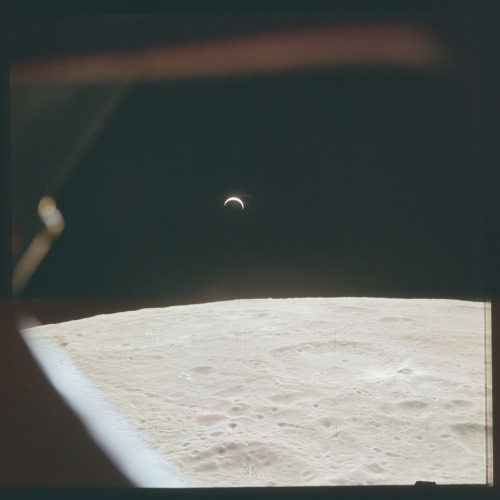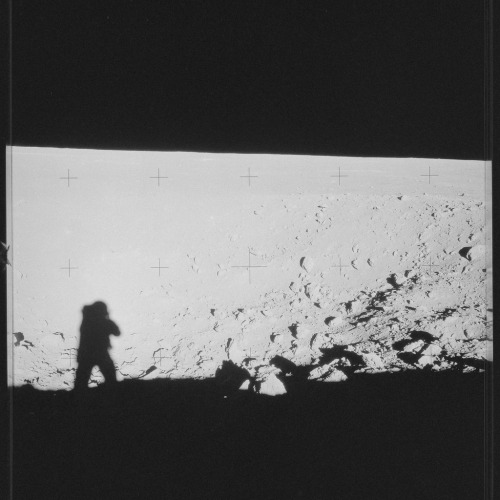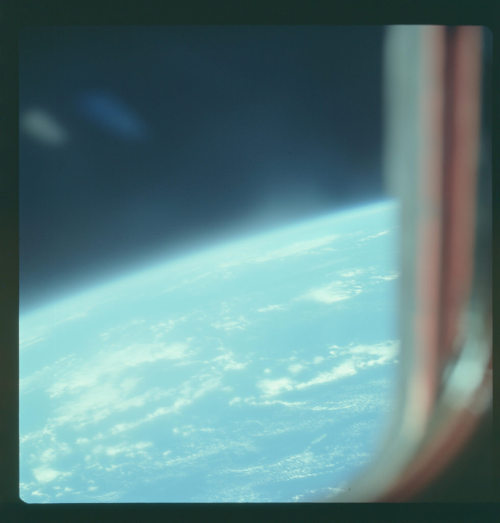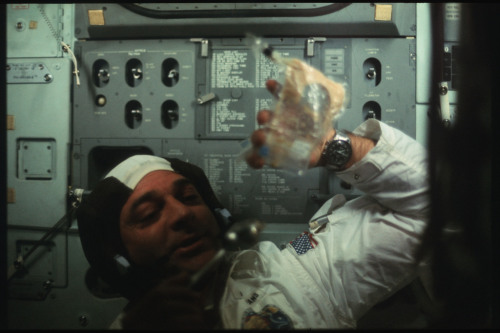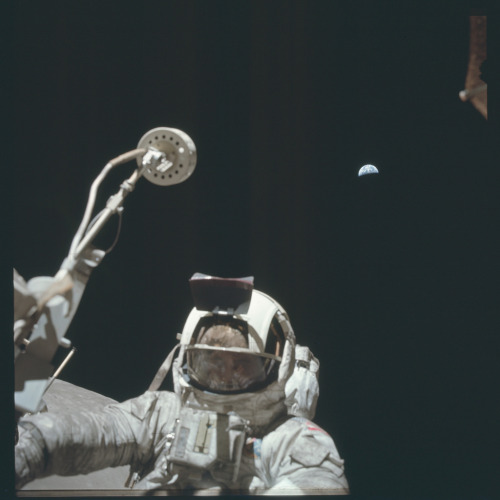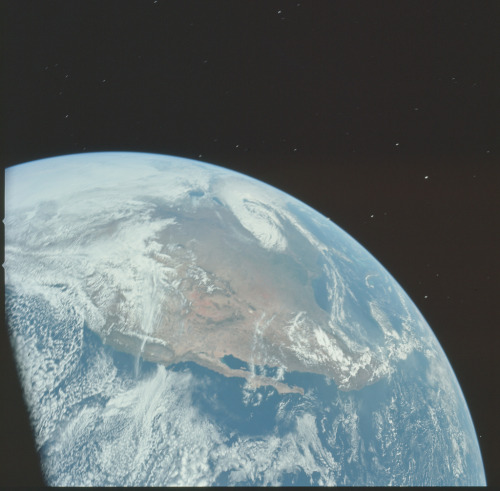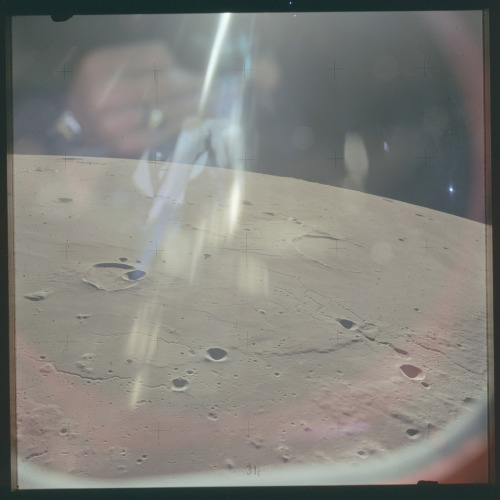
21 · female · diagnosed asperger'sThe vacuum of outer space feels so comfy :)
233 posts
Latest Posts by cozy-airlessness - Page 5
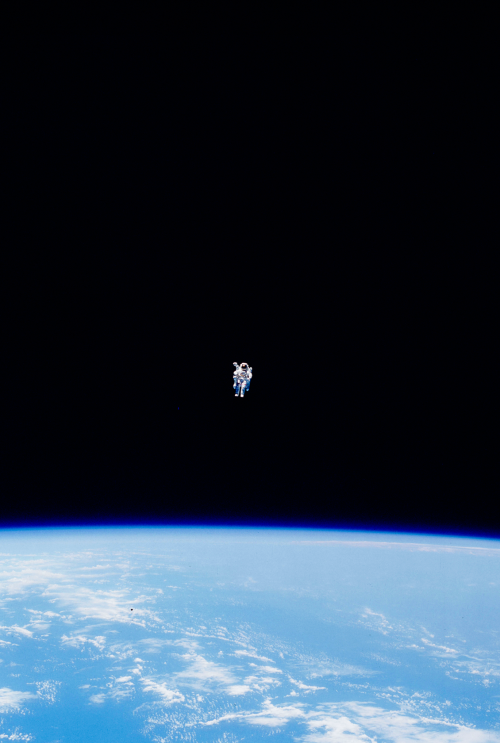
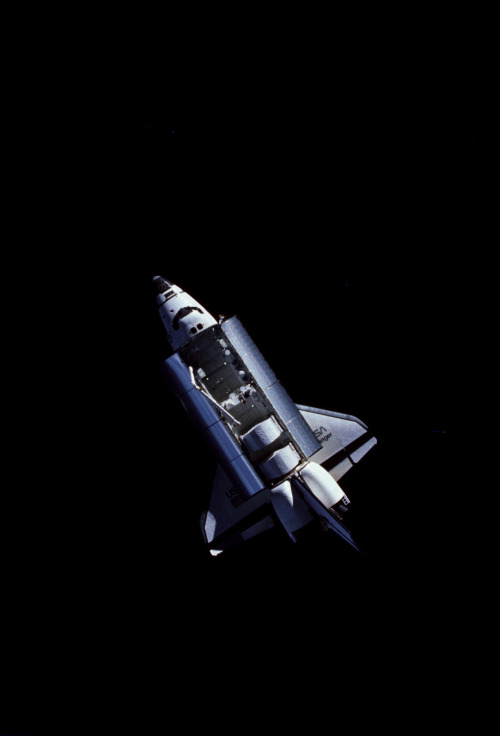
The view of and from Bruce McCandless while conducting the first untethered EVA and preliminary test-flight of the Manned Maneuvering Unit (MMU) on February 12, 1984. Bruce ventured approximately 320 feet from the orbiter.

Discovery Approaches ISS by NASA on The Commons

I came up for the idea for this one while looking out of my airplane window. In the last two years, I’ve travelled a lot, and I have a love/hate relationship with it. I don’t like the feeling of being away from home, and feeling slightly lost. But I love the feeling of having nothing to do but letting my mind wander, and thinking about places I’ve never been before. This piece is inspired by that mellow feeling ~



Snapshots of Earth, captured by Apollo 16 astronauts on this day in 1972.

Train 🌟
Twitter | Instagram | Deviantart
Is that in the LM on the surface? I think that's the first video I've seen of inside the LM while on the surface. I was curious to see the effects of the lower gravity.



Charlie Duke during Apollo 16, April 1972

Melba Roy, NASA Mathmetician, at the Goddard Space Flight Center in Maryland in 1964. Ms. Roy, a 1950 graduate of Howard University, led a group of NASA mathmeticians known as “computers” who tracked the Echo satellites. The first time I shared Ms. Roy on VBG, my friend Chanda Prescod-Weinstein, a former postdoc in astrophysics at NASA, helpfully explained what Ms. Roy did in the comment section. I am sharing Chanda’s comment again here: “By the way, since I am a physicist, I might as well explain a little bit about what she did: when we launch satellites into orbit, there are a lot of things to keep track of. We have to ensure that gravitational pull from other bodies, such as other satellites, the moon, etc. don’t perturb and destabilize the orbit. These are extremely hard calculations to do even today, even with a machine-computer. So, what she did was extremely intense, difficult work. The goal of the work, in addition to ensuring satellites remained in a stable orbit, was to know where everything was at all times. So they had to be able to calculate with a high level of accuracy. Anyway, that’s the story behind orbital element timetables”. Photo: NASA/Corbis.

Two astronauts asleep on Challenger’s middeck, August 9th 1983 ‘On Challenger’s middeck, Commander Richard “Dick” Truly and Mission Specialist (MS) Guion Bluford sleep in front of forward lockers and port side wall. Truly sleeps with his head at the ceiling and his feet to the floor. Bluford, wearing sleep mask (blindfold), is oriented with the top of his head at the floor and his feet on the ceiling.’
Credit to the NASA Archives.









this too shall past (to reveal to you an appreciation for things you never knew)

Part 2! 🤩 BepiColombo’s last close-ups of Earth during flyby
A sequence of images taken by one of the MCAM selfie cameras on board of the European-Japanese Mercury mission BepiColombo as the spacecraft zoomed past the planet during its first and only Earth flyby on 10 April 2020.
► Learn more about BepiColombo: https://www.fromspacewithlove.com/bepicolombo/
📸 Copyright ESA/BepiColombo/MTM, CC BY-SA 3.0 IGO


Mars, from pole to pole (ESA’s Mars Express Mission)

Apollo 17 ascent stage returning to moon orbit.
true space facts
if u look up there it is

Crescent Earth seen from the Moon
An Astronaut’s Tips For Living in Confined Spaces
One thing astronauts have to be good at: living in confined spaces for long periods of time.

Nearly 20 years successfully living on the International Space Station and more than 50 flying in space did not happen by accident. Our astronauts and psychologists have examined what human behaviors create a healthy culture for living and working remotely in small groups. They narrowed it to five general skills and defined the associated behaviors for each skill.
For many of us in a similar scenario, here are the skills as shared by astronaut Anne McClain:
Skill 1, Communication

Share information and feelings freely.
Talk about your intentions before taking action.
Discuss when your or others’ actions were not as expected.
Take time to debrief after success or conflict.
Admit when you are wrong.
Skill 2, Self-Care

Balance work, rest, and personal time. Be organized.
Realistically assess your own strengths and weaknesses, and their influence on the group.
Identify personal tendencies and their influence on your success or failure. Learn from mistakes.
Be open about your weaknesses and feelings.
Take action to mitigate your own stress or negativity (don’t pass it on to the group).
Skill 3, Team Care

Demonstrate patience and respect. Encourage others.
Monitor your team (or friends and family) for signs of stress or fatigue.
Encourage participation in team (or virtual) activities.
Volunteer for the unpleasant tasks. Offer and accept help.
Share credit; take the blame.
Skill 4, Group Living

Cooperate rather than compete.
Actively cultivate group culture (use each individual’s culture to build the whole).
Respect roles, responsibilities and workload.
Take accountability; give praise freely. Then work to ensure a positive team attitude.
Keep calm in conflict.
Skill 5, Leadership/Followership

Accept responsibility.
Adjust your style to your environment.
Assign tasks and set goals.
Lead by example. Give direction, information, feedback, coaching and encouragement.
Talk when something isn’t right. Ask questions.
We are all in this together on this spaceship we call Earth! These five skills are just reminders to help cultivate good mental and physical health while we all adjust to being indoors. Take care of yourself and dive deeper into these skills HERE.
Make sure to follow us on Tumblr for your regular dose of space: http://nasa.tumblr.com.


crystalworksgallery on ig

Full Moon rises behind a Soyuz rocket


We’re made of stars
✨ ✨ ✨ ✨ ✨ ✨ ✨ ✨ ✨ ✨ Facebook, Twitter and Instagram Link to Etsy

Doug McLeod ‘Outbound’ (1988). From the book Visions of Space by David Hardy (1989)

Painting by Pamela Lee ‘Astronaut with MMU Above Solar Panels’ from the book In The Steam of the Stars- The Soviet-American Space Art Book (1990)
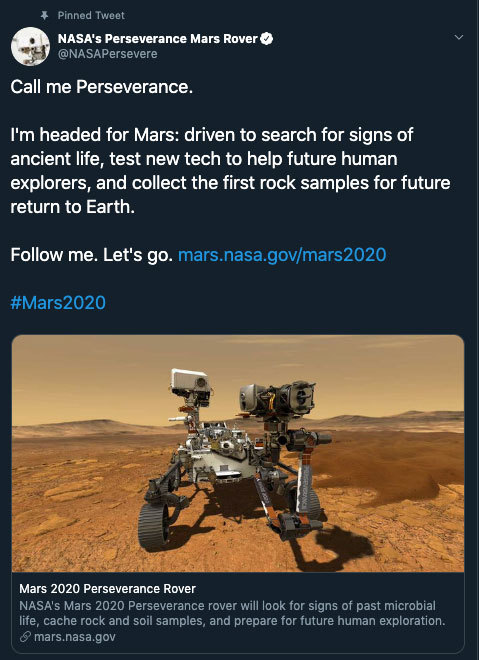
Allow us to reintroduce someone … the name’s Perseverance.
With this new name, our Mars 2020 rover has now come to life! Chosen by middle school student Alex Mather, Perseverance helps to remind ourselves that no matter what obstacles we face, whether it’s on the way to reaching our goals or on the way to Mars, we will push through. In Alex’s own words,
“We are a species of explorers, and we will meet many setbacks on the way to Mars. However, we can persevere. We, not as a nation but as humans, will not give up. The human race will always persevere into the future.”
Welcome to the family. ❤️
Make sure to follow us on Tumblr for your regular dose of space: http://nasa.tumblr.com.

wlw

HP 9845C by ✖ Daniel Rehn







idk if anyone’s put this up yet but i felt it was good enough to share


Southern moonscape
The circumference of the moon’s orbit is 2,412,743km :/

Yeah! Even for that diameter you suck !
